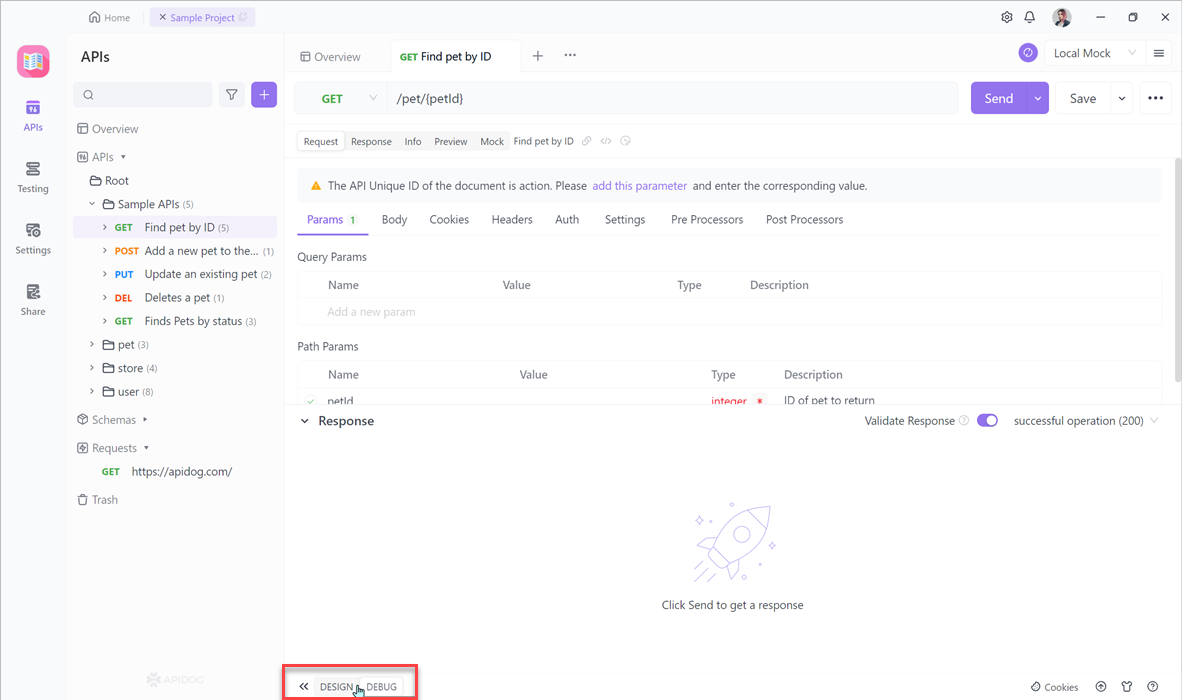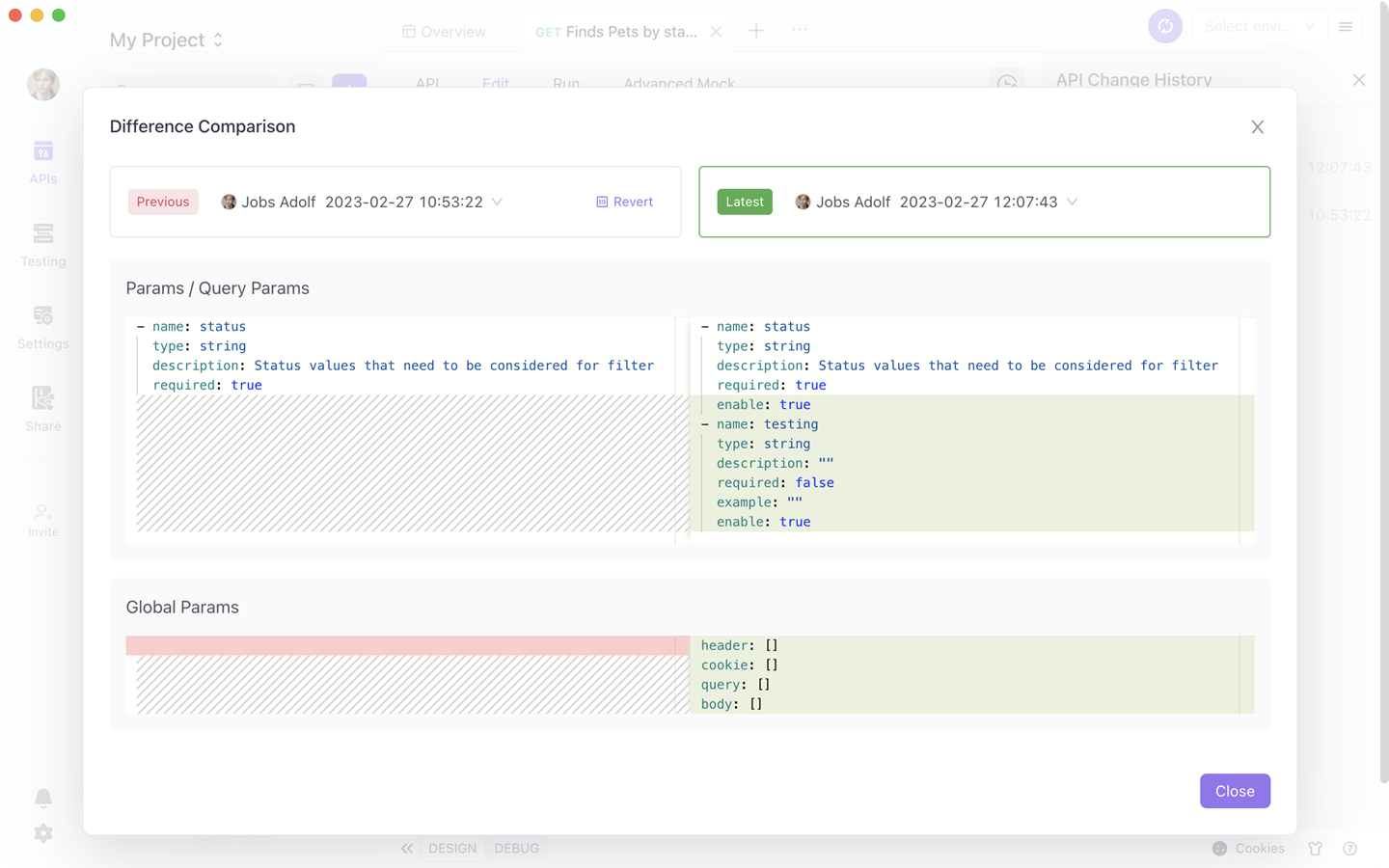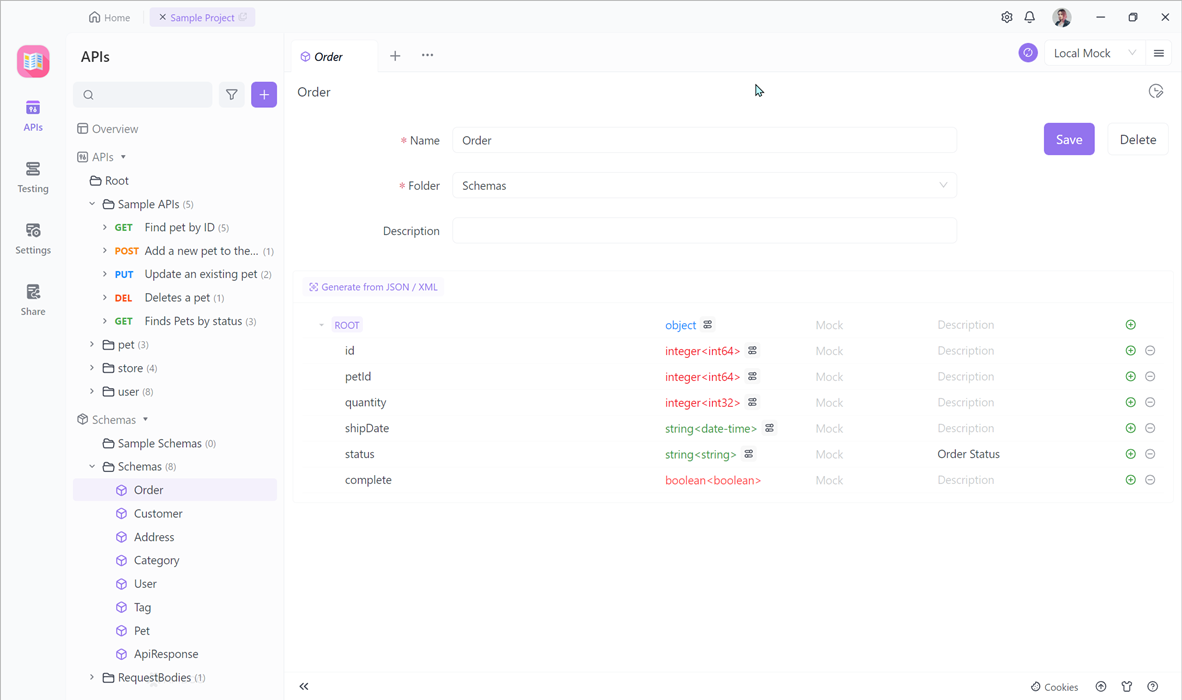Apidog Updates: New Mode for API Debugging Now Online
The Apidog team brought many "heavyweight" new features in this new version. The new "Debug Mode" simplifies interface debugging, try it now.
In January, based on user feedback, the Apidog team brought many "heavyweight" new features. Welcome to visit the web version for an early experience.
The main focus of this version is:
- New "Debug Mode" simplifies API debugging
- Testing cases support adding loops, conditional statements, and other functions
- New API batch management function
- New API modification history function
- Upgrade of data structure display and editing style
New "Debug Mode" Simplifies API Debugging
The API management has added Debug Mode, which can send requests and modify parameters directly on the same API, without the need to define the API document first. This mode is more suitable for the development needs of Code-First users, focusing on "debugging" to make API requests simpler and more direct, and improve API debugging efficiency. After debugging, it can be saved as an API for sharing and collaboration in future documents.
Design Mode: Define/modify the document first, then run;
Debug Mode: Send a request and run on the same API.
The original mode is renamed "Design Mode", and the two modes have basically the same functions. The only difference is the focus of interactive design. Data can be exchanged between the two modes, and users can switch between them according to their needs.

Test Cases Support Adding Iterations, Conditional and Other Features
When setting up test cases, it is now possible to add control flow conditions such as loops, conditionals, waits, grouping, and error handling to request steps, which help users to achieve more complex test scenarios through automated testing.
- Iterations: Support for fixed-number and condition-based loops.
- Conditionals: Support for adding if-else conditional statements.
- Grouping: Support for grouping multiple request steps into a single group to improve readability and user experience.
- Waits: Support for setting wait times, allowing for a delay before executing subsequent steps.
- Error handling: New global error handling features ensure that test cases run as expected.

A New Feature Added for Batch Management of API
In order to improve the efficiency of API management, a new API data table display page has been added to the directory, making it easier for teams to manage API in a unified manner. Customization of data table fields for filtering and sorting is also supported. In addition, a new feature has been added for batch management of APIs, allowing for batch editing, deletion, movement, export, and other operations to be performed on APIs.
A New Feature was Added for an API Modification History
In order to better support collaborative scenarios among teams, we have added a modification history feature for API documents and data models.
The API modification history will record changes to each field of the API, including modification operations by team members and API document changes caused by import overwriting. It supports comparison with historical versions to clearly understand the specific changes made to the API. At the same time, it also supports restoration to any historical version to help teams better manage API versions.

Upgrade of Data Structure Display and Editing Style
The editing and display API of the API has been completely update. including:
A new layout of data schemas editor to help users conveniently set data types.

The display style of the data structure of the API document has been optimized and upgraded. The example has been moved to the right side of the data structure for comparison display, and the data name is highlighted to enhance the readability of parameter information and improve the reading experience of the API document.
Learn More
The Apidog product team has brought more new features than just the ones listed above:
- The main window and project window are merged, and project tab hierarchy is added to support frequent switching, dragging, and API debugging between multiple projects.
- When setting a custom domain for publishing documentation, a new self-owned server relay method is added.
- Markdown editor syntax is expanded with new bulletin and folding block styles.
- When importing files from Swagger, the directory field of the synchronized document in Swagger is supported along with the synchronization of the API document.
- Auth supports OAuth 1.0.
- The API runtime supports Mock returning image byte streams.
- The response body of the runtime API supports copying and searching for the Raw type, and copying for the Preview type.
- When debugging shared API documents, the request example can be automatically generated when the body parameter of the request parameter is json, xml, or raw.
- The local value of a variable can be set to follow the remote value.
- Markdown syntax supports HTML attributes.
- Pre and post-processors in APIs and API test cases display the effective status of the higher-level pre and post-processors, allowing users to see the specific details of the pre and post-processors that are actually effective during API operation, and manually control the switch of each level.
In addition to new features, we have also optimized product details and user experience. Specific changes can be found in the Apidog changelog.
We welcome users to continue providing feedback and suggestions for optimization, and we will continue to optimize and update our products to provide users with better product features and an even better user experience.
For more usage instructions and operations, please refer to the help center. If you have any questions, please feel free to communicate with us in the Apidog user group.





